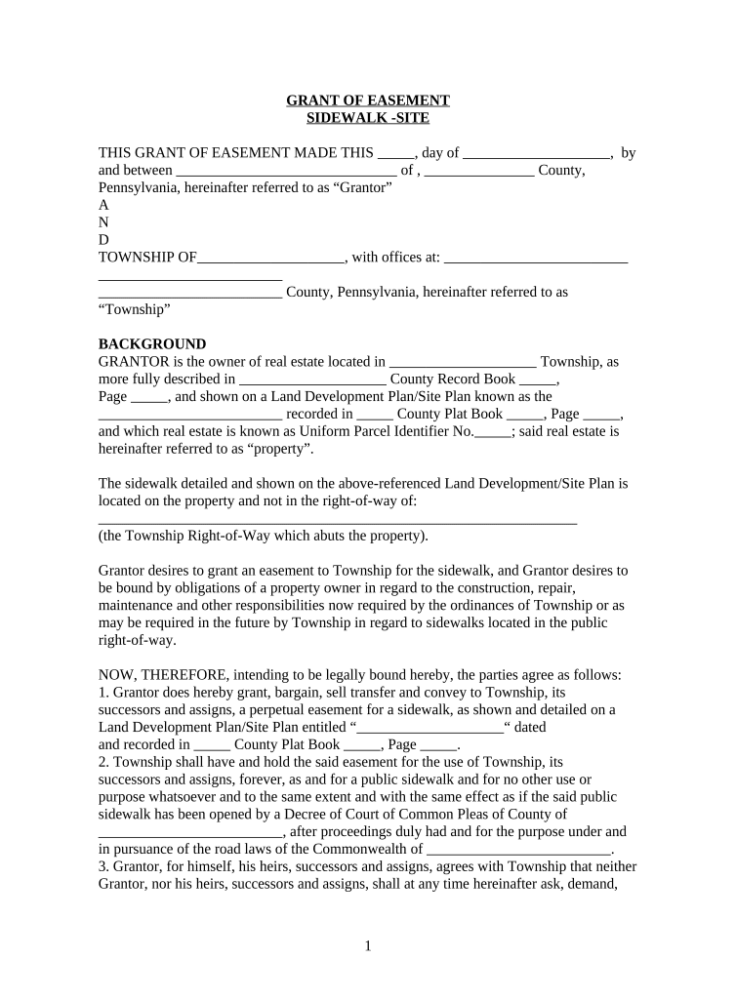How Easement Laws Work in Pennsylvania
When you envision owning a piece of real estate, you may imagine a cozy home surrounded by a lush garden. However there’s more to property ownership than meets the eye. In Pennsylvania easement laws are essential in shaping how land can be utilized and shared. An easement grants you the right to access someone else’s property for a purpose. For example you might require passage through your neighbors yard to get to a public road. Familiarizing yourself with these regulations can help prevent disputes and facilitate interactions, among property owners.
Understanding Different Types of Easements
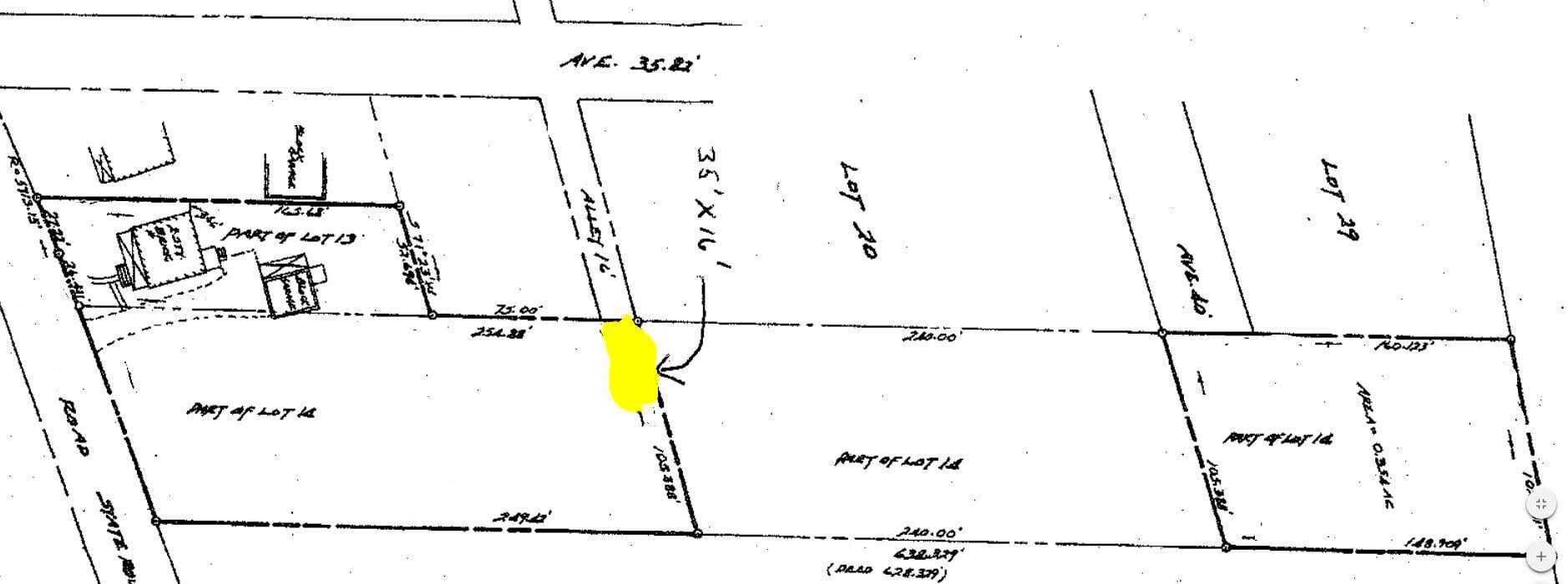
Easements are kind of like those rules we follow when we share things but they actually have it down on paper. Let me give you a quick overview of the types you might come across.
- Right of Way Easements: These allow one person to cross another’s property. For example, if you live on a street that doesn’t connect to a main road, you might have a right of way easement to get to your house.
- Utility Easements: Utilities like electricity and water need to pass through private land. These easements allow utility companies to install and maintain their infrastructure.
- Easement by Necessity: Sometimes, an easement is granted because it’s essential for the landlocked property owner to access their property. This can be crucial in rural areas where properties might be isolated.
- Easement by Prescription: This is akin to gaining a right through continuous use over time. If you’ve been using a path across someone’s land for years without objection, you might claim this easement.
Different types of easements have specific functions and regulations. Familiarity with these distinctions aids in grasping your entitlements and obligations.
How Easements Are Created in Pennsylvania
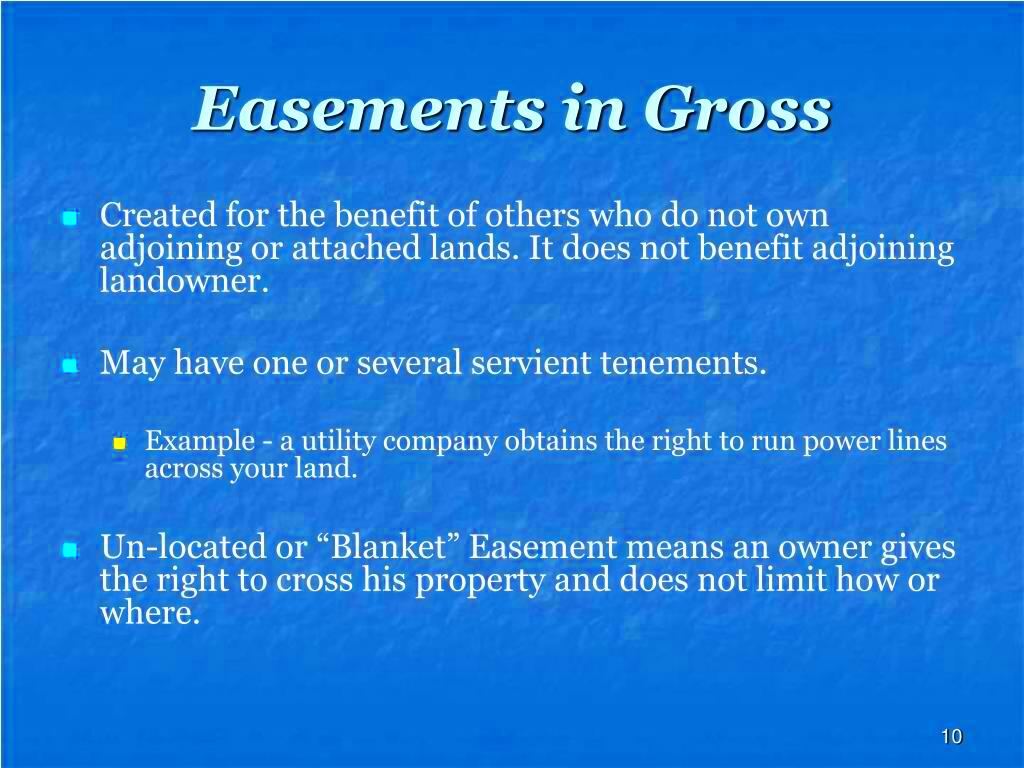
Establishing an easement in Pennsylvania requires some legal procedures. Here’s a straightforward overview of how it works.
- Written Agreement: Most easements are formalized through a written agreement between the property owner and the easement holder. This document should outline the purpose, location, and any conditions of the easement.
- Property Deed: Easements are often recorded in the property deed. This means that they become part of the public record and are legally binding. It’s essential to make sure this is done correctly to avoid future disputes.
- Legal Descriptions: The easement must be clearly described in terms of its location and dimensions. This ensures that there is no ambiguity about where the easement exists and what it covers.
- Approval from Authorities: Depending on the nature of the easement, you might need to get approval from local government authorities or zoning boards.
From what I’ve seen a well defined contract can help avoid problems later on. If you have any doubts about the procedure it’s wise to seek advice from a professional to make sure everything is done correctly.
Rights and Responsibilities of Easement Holders
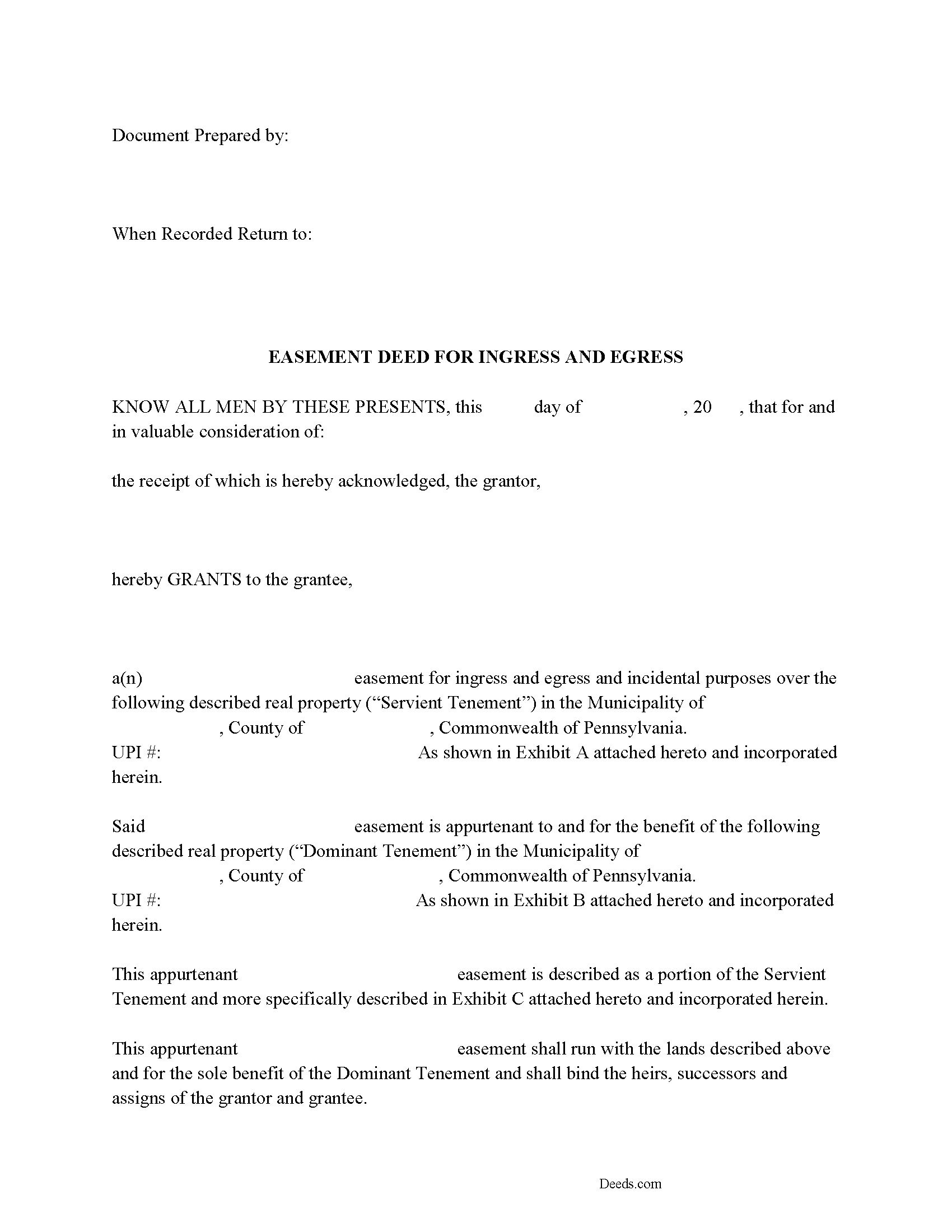
Having an easement in Pennsylvania isn’t solely about having the to access someone else’s land; it also entails a range of responsibilities and duties. Imagine this scenario you’ve been given an easement to traverse your neighbors property in order to get to a lake. While you take pleasure in the scenery it’s essential to honor the limits established in the easement contract.
As someone who holds an easement there are important rights and duties to keep in mind.
- Right to Use: You can use the easement for the purpose specified in the agreement. If it’s a right of way, you can walk or drive through, but not set up a permanent structure.
- Maintenance: Depending on the agreement, you might be responsible for maintaining the easement area. This could mean keeping the path clear of debris or ensuring that the utility lines are in good condition.
- Respect Property: Avoid causing damage to the land you are using. For instance, if the easement is for a utility line, make sure your activities don’t obstruct access for maintenance work.
- Adhere to Terms: Follow any specific terms laid out in the easement agreement, such as restrictions on the type of vehicles you can use or the hours during which you can access the property.
From what I’ve observed effective communication and respect between the property owner and the easement holder can go a long way. It’s not solely about the aspects but also about fostering positive relationships with neighbors.
Common Disputes Related to Easements
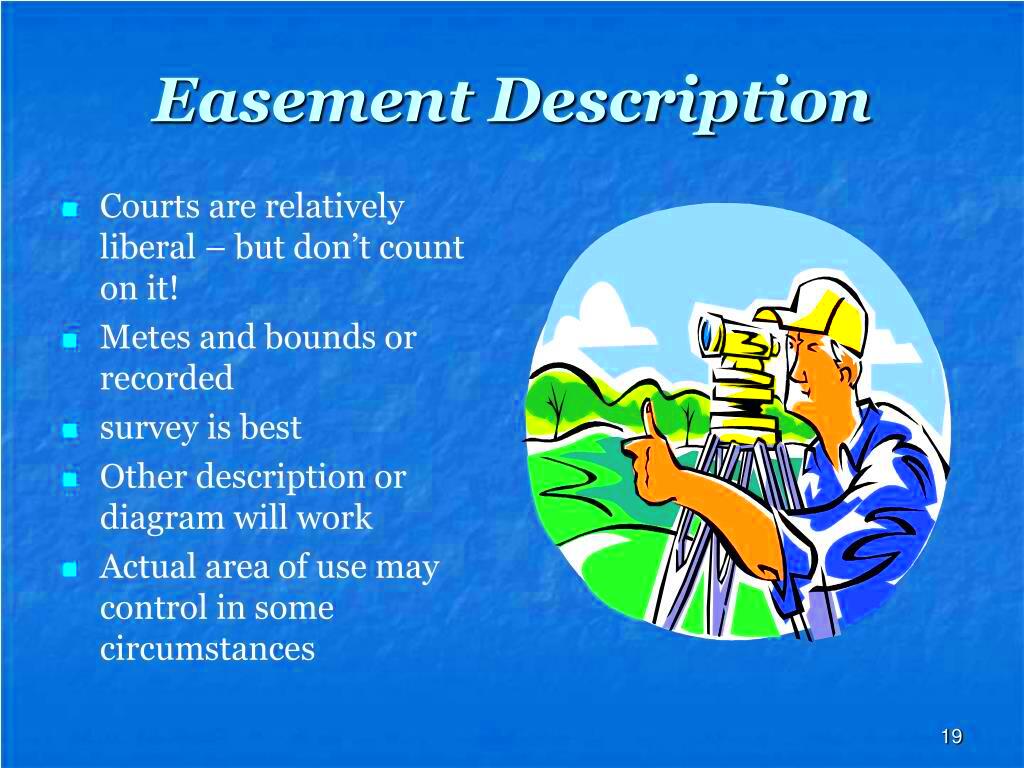
Easements can be beneficial but they may also give rise to conflicts. These disputes often occur when there are discrepancies in expectations or when the terms lack clarity. Here are some issues worth considering.
- Encroachment: This happens when the easement holder uses the land beyond the agreed boundaries. For example, if a right of way is established for foot traffic, but you start using it for parking, it could lead to conflicts.
- Obstruction: Sometimes, property owners may block access to the easement area, intentionally or accidentally. This could be due to construction, landscaping, or other changes to the property.
- Maintenance Disagreements: There might be disputes over who is responsible for maintaining the easement area. One party might feel that the other isn’t upholding their end of the bargain.
- Use Beyond Scope: If the easement is for a specific purpose, like accessing a road, using it for other activities, such as running a business, can cause friction.
Based on what I’ve seen firsthand it’s evident that a little extra openness and dialogue could help prevent a lot of conflicts. Taking the time to touch base and provide clarifications can make a significant difference in avoiding misinterpretations.
Legal Procedures for Resolving Easement Disputes
In case of conflicts regarding easements it’s crucial to understand the steps to take. Here’s a simple way to tackle these matters.
- Review the Agreement: Start by examining the easement agreement to understand the terms and conditions. This often helps clarify the rights and responsibilities of both parties involved.
- Open Communication: Before taking legal action, try to discuss the issue directly with the other party. Sometimes, a simple conversation can resolve misunderstandings and lead to an amicable solution.
- Mediation: If direct communication doesn’t work, consider mediation. A neutral third party can help facilitate a resolution and find a compromise that satisfies both sides.
- Legal Action: If mediation fails, you might need to seek legal advice. Filing a lawsuit might be necessary to enforce your rights or seek damages. Consult with an attorney who specializes in property law to guide you through the process.
- Document Everything: Keep detailed records of all communications, agreements, and disputes. This documentation will be valuable if the matter goes to court.
Based on what I’ve seen tackling issues head on and looking for solutions early on can help you avoid a lot of hassle, pressure and expenses. Dealing with matters can be tricky so its best to get guidance to navigate through the complexities smoothly.
How Easement Laws Affect Property Transactions
When it comes to buying or selling real estate easement regulations can have an impact on the transaction. Picture this you have your sights set on a lovely piece of land complete with a cozy home but there’s an easement that goes through it. Grasping the way easements influence property deals can assist you in making choices.
Easement regulations play a role in property deals by affecting the rights to use a portion of land owned by someone else. These laws can impact the buying selling and leasing of real estate properties as they determine how land can be utilized and accessed. For instance if there is an easement in place granting access to a road or a utility line it may influence the value and desirability of a property. Buyers and sellers need to be aware of easement agreements as they can impact property use and potential future developments.
- Disclosure Requirements: Sellers are often required to disclose any easements affecting the property. This transparency ensures that potential buyers are aware of any rights others might have over the land.
- Property Value: Easements can impact property value. For example, a utility easement that runs through the center of a lot might lower its market value, while a right of way might limit potential uses of the property.
- Title Search: During the buying process, a title search will reveal any existing easements. This helps buyers understand what rights others have and whether any issues need to be addressed before closing the deal.
- Negotiation Leverage: If an easement is discovered, it could become a point of negotiation. Buyers might request repairs, adjustments, or even a reduction in price to account for the impact of the easement.
In my view easements can add complexity to deals but they also present chances for discussions. Open dialogue and careful research play a role in handling these obstacles effectively.
Recent Changes in Easement Laws
Staying informed about the changes in easement laws is essential if you are engaged in property dealings or managing land. There have been some recent updates that could impact the way easements are addressed in Pennsylvania.
Here are a few key changes to be aware of:
- Increased Transparency: Recent legislation requires more detailed disclosure of easements in property transactions. This means that buyers will have better information about any existing easements and their implications.
- Updated Maintenance Responsibilities: There have been changes in the responsibilities for maintaining easement areas. Property owners and easement holders need to be clear about who is responsible for upkeep, especially for utility easements.
- New Dispute Resolution Mechanisms: New laws have introduced more structured approaches to resolving disputes over easements. Mediation and arbitration are now more accessible options before resorting to court action.
- Stricter Guidelines for Easement Creation: The process for creating easements has become more regulated. This includes clearer documentation and more rigorous approval procedures to ensure that all parties are well-informed.
I think it’s important to keep up with these changes. They can affect property values as well as the efficiency of transactions and the resolution of land use conflicts.
Frequently Asked Questions About Easement Laws
Easement laws can be pretty intricate so it’s normal to have some questions. Here are a few queries that tend to come up frequently;
- What is an easement? An easement is a legal right to use someone else’s land for a specific purpose, like crossing their property to reach your own.
- How do I find out if my property has an easement? Check your property deed or conduct a title search. Easements are usually recorded and should be disclosed during property transactions.
- Can an easement be changed or removed? Yes, but it typically requires agreement from all parties involved or a legal process. It’s best to consult with a property attorney to understand your options.
- What happens if there is a dispute over an easement? Disputes can often be resolved through mediation or arbitration before taking legal action. Reviewing the easement agreement and seeking legal advice is a good first step.
- How do easements affect property value? Easements can impact property value depending on their nature. For example, an easement that limits land use might lower value, while some might not significantly affect it.
From what I’ve seen going through these frequently asked questions can really help clarify easement laws and make handling them feel less overwhelming. If you have any doubts about easement laws it’s wise to get some guidance from a professional.
Conclusion on Easement Laws in Pennsylvania
Easement laws in Pennsylvania might seem tricky at first, but they play a vital role in managing how land is used and protecting property rights. Whether you’re dealing with a right of way, a utility easement or any other kind understanding these laws can help avoid conflicts and ensure smooth property transactions. From what I’ve seen clear communication and a good understanding of responsibilities can make a big difference. Easements are not legal obligations; they are woven into the fabric of neighborly coexistence and sharing space. So whether you’re a property owner, buyer or simply curious about land use getting to know easement laws is both practical and important.
